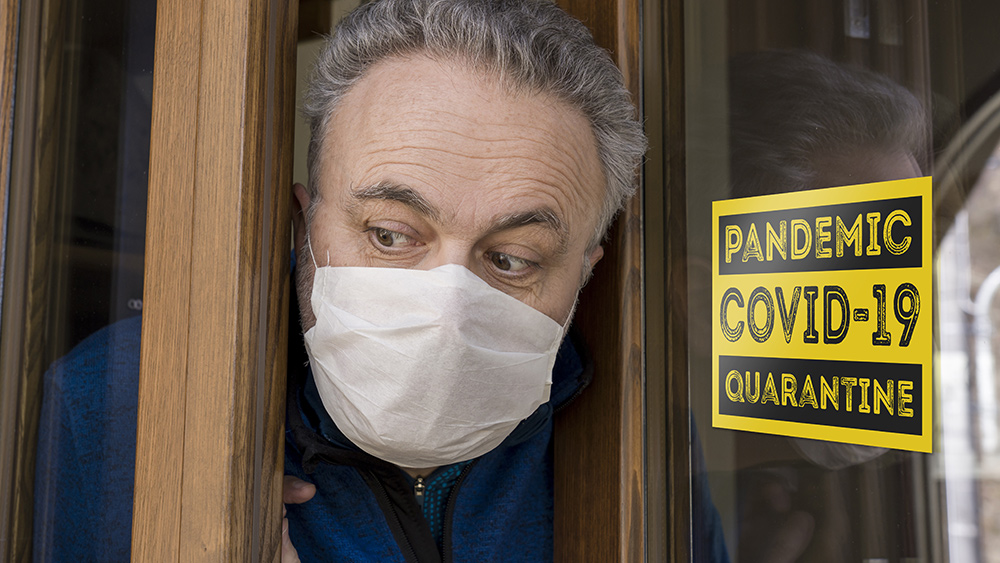
Published in the journal International Psychogeriatrics, the study revealed that a drop in physical activity levels was linked to symptoms of poor mental health, depression in particular. "We are only just beginning to learn the impact that COVID-19 is having on the health and well-being of older people," said Clive Ballard, co-author of the study and the executive dean of the University of Exeter Medical School.
Overall, the findings highlight the need to examine policies in the time of COVID-19 that affect people's mental health and physical activity levels.
Loneliness and lack of exercise linked to poor mental health
Loneliness and reduced physical activity are linked to mental health. Since mitigation strategies like lockdowns and social distancing policies can have a significant impact on an individual's mental health and well-being, it's possible that loneliness and reduced physical activity in the time of COVID-19 are preventable.
For their study, the researchers used data from the PROTECT online study. The PROTECT study began in 2011 and involves 25,000 adults aged 50 and over. It was designed to examine factors involved in aging.
In May last year, the researchers added a questionnaire to assess the impact of COVID-19 on health and well-being. It was completed by 3,300 participants, including 1,900 longstanding PROTECT participants.
When the researchers compared the participants' data from the new questionnaire with data collected between 2015–2019, they found that lonely people reported experiencing an average of two symptoms of depression for several days over a two-week period prior to the pandemic. But during lockdown, lonely people reported either experiencing depressive symptoms for over half the days in a two-week period or experiencing a new symptom for at least several days in that same timeframe.
Older women and retired adults were also far more likely to struggle with their mental health. Those who weren't lonely to begin with, the levels of depressive symptoms remained unaffected.
The researchers also noted that a decrease in physical activity levels since the start of the pandemic was closely linked to worsening symptoms of depression and anxiety. (Related: Natural ways to manage anxiety.)
Overall, the findings indicate that loneliness and reduced physical activity are key factors linked to having poor mental health and worsening symptoms of depression and anxiety during the pandemic.
"Even before the pandemic, loneliness and physical activity level were a huge issue in society," said lead author Byron Creese. "It's now crucial that we build on this data to find new ways to mitigate risk of worsening mental health during the pandemic."
The researchers said they plan to conduct further analysis on groups with high risk of poor mental health, such as people with cognitive impairment and those with caring roles.
Ballard is also hopeful that the PROTECT study, which is still running, will help them understand the effects of the pandemic on people's mental health and well-being in the long run. The study might also help them understand the impact of those effects on aspects of aging, such as brain function or memory.
Researchers from Queen's University Belfast in Northern Ireland are also currently conducting a similar study on the impact of social distancing regulations on social interaction, isolation and loneliness. They hope to find out how a situation such as the government lockdown can impact loneliness
Combatting loneliness amid a pandemic
The current recommendations to stay at home, practice social distancing and limit social interactions can have a huge impact on people's mental health because they foster feelings of loneliness.
Loneliness can be damaging to an individual's mental health. Studies have associated chronic loneliness with a greater risk of developing mental health disorders like depression. And the longer people go without managing their loneliness, the harder it might be to recover from its impact.
Fortunately, there are many ways people can combat loneliness during the pandemic.
Here are some of the things that you can do: call a friend – lockdowns have affected how people spend time with their friends and loved ones, but they don't prohibit people from calling, texting or messaging friends and loved ones online; volunteer – volunteering gives people a sense of purpose and promotes positive feelings, and a research even shows that volunteering has positive effects on depression, life satisfaction and well-being; go for a walk – some people also feel anxious, irritable or listless after days of staying indoors so it helps to go out for a short walk around the neighborhood or green spaces like parks on such occasions; and take up new hobbies – taking up a new hobby is a great way to keep the mind occupied while cooped up indoors.
Go to Mental.news to learn more about beating mental health issues like loneliness and depression.
Sources include:
Please contact us for more information.






















